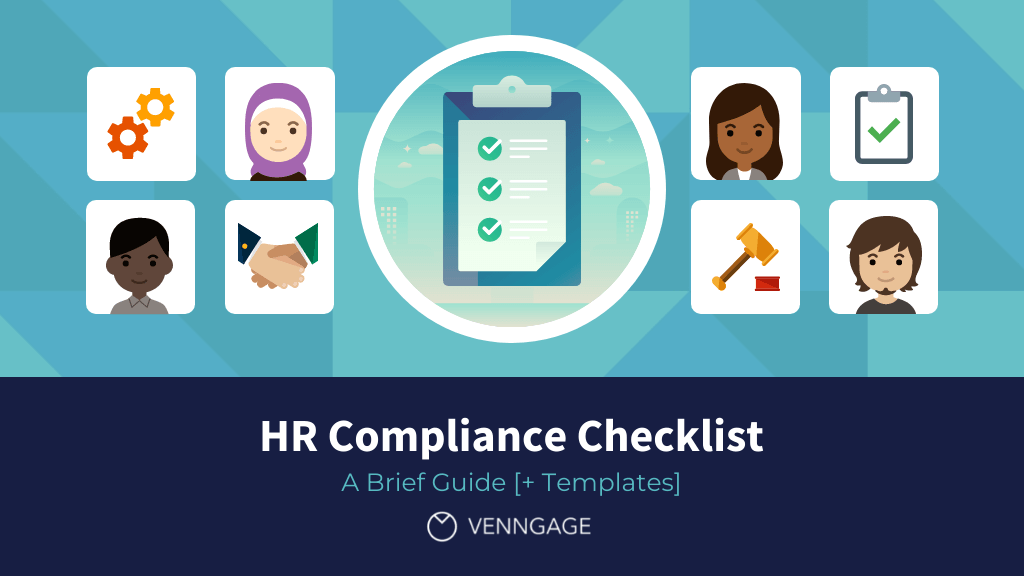
In today's unstable regulatory environment, HR compliance has evolved from a back-office task to a crucial component of organizational success. EDP Services a leader in workforce management solutions, announces the release of its revolutionary suite of EDPS tools as companies struggle with growing regulatory challenges, such as shifting labour laws and cross-border data privacy standards. These tools enable businesses to transform regulatory compliance into a competitive advantage by streamlining compliance, reducing risks, and future-proofing operations.
HR compliance calls for agility and foresight in a time when non-compliance can result in significant fines, business interruptions, and reputational harm. Traditional methods that rely on manual procedures and disorganized systems find it difficult to keep up with changing regulations such as POSH, GDPR, and diversity reporting requirements. Enter EDPS tools, a fusion of real-time analytics, AI-driven automation, and user-friendly design that revolutionizes how companies handle complexity. These tools help HR teams transition from reactive firefighting to proactive governance by proactively addressing regulatory challenges.
The set of tools addresses today's most urgent issues, from geolocation-enabled compliance for remote teams to automated updates on changes to labor laws. For example, encrypted data portals guarantee GDPR-aligned security, and AI-powered sentiment analysis detects potential risks before they gets worse. EDP Services is assisting companies in creating robust, moral, and future-ready organizations by integrating compliance into daily operations.
The Rising Tide of HR compliance Challenges
HR compliance has expanded beyond simply checking off items on labour law checklists. Companies face a complex web of regulatory issues that cut across borders, cultures, and technological advancements in today's hyperconnected, rapidly changing corporate ecosystem. From data privacy laws to the challenges of overseeing a global remote workforce, companies are under more pressure than ever to change or face harsh financial penalties, damage to their reputation, and operational paralysis. We examine the key issues that are changing the compliance landscape below, as well as how EDPS tools are becoming vital allies in this fight.
1. Dynamic Regulatory Environments: A Moving Target
Laws in workplace are always changing. Laws such as the General Data Protection Regulation (GDPR) of the EU, the Prevention of Sexual Harassment (POSH) Act of India, and changing labor laws around the world necessitate constant attention to detail. Reconciling local customs with international standards increases complexity for multinational corporations. Businesses may be exposed to legal risk if a policy that complies with one region's regulations conflicts with those of another.
"The rate of legislative change has increased tenfold," says the CEO of EDP Services. "Annual audits are no longer reliable for businesses. Real-time agility is now necessary for HR compliance.
This is addressed by AI-driven regulatory tracking in EDPS tools. While customizable dashboards rank actions according to a company's industry and geographic reach, automated alerts inform HR teams of changes to laws in various jurisdictions. For instance, after automating updates across five Indian states with conflicting labor codes, a retail chain that used these tools decreased compliance errors by 70%.
2. Data Privacy & Security: The Trust Imperative
Employee data is now both an asset and a liability due to the shift to remote work and digital record-keeping. Lawsuits, fines from the government, and irreparable damage to trust can result from breaches of sensitive data, such as payroll information, medical records, or performance evaluations. According to a 2023 study, 68% of workers would think twice about continuing to work for a company if there was a data privacy breach.
EDPS tools use military-grade security features to counter these threats. GDPR, ISO 27001, and other framework compliance is guaranteed by end-to-end encryption, role-based access controls, and audit trails. A healthcare provider completely eradicated instances of unauthorized data access, and a fintech company using these tools cut employee record audit times by half.
3. Inclusive Workplace Policies: Beyond Tokenism
DEI (diversity, equity, and inclusion) is now a must. Both companies and employees want open reporting on workplace safety, hiring biases, and pay equity. Many organizations, though, find it difficult to go beyond performative policies.
With DEI analytics dashboards that monitor indicators like gender pay disparities and promotion rates, EDPS tools help close this gap. Sentiment analysis tools allow for proactive interventions by looking for indications of harassment or discrimination in employee feedback. By matching recruitment tactics with real-time DEI insights from EDPS tools, a manufacturing client increased gender diversity at leadership levels by 40% in less than a year.
4. Remote Workforce Management: The Borderless Challenge
There are difficult regulatory issues when managing a remote team in different time zones. Traditional HR frameworks are put under pressure to track hours, ensure fair wages under local minimum wage laws, and comply with tax norms for cross-border employees. Penalties can result from a single error in geolocation-based tax filings or overtime calculations.
Geolocation-enabled compliance features in EDPS tools make this easier. Digital contract management guarantees compliance with regional employment norms, while automated time-tracking aligns with local labor laws. Using these tools to handle remote worker contracts and tax filings allowed an IT startup to grow to 12 countries without adding more compliance personnel.
Turning Compliance into Competitive Advantage
HR compliance has never been more important. As CEO points out, however, "Compliance isn't just about avoiding fines—it's about building ethical, resilient workplaces." However, manual procedures and outdated systems make companies vulnerable and reactive.
By integrating compliance into the DNA of operations, EDPS tools change this narrative. AI simplifies reporting, predictive analytics predicts risks, and intuitive user interfaces enable even non-technical teams. The outcome? Companies start establishing ethical standards that draw top talent and investor confidence instead of rushing to meet deadlines.
EDP Services is giving companies the tools they need to lead in a world where regulatory obstacles are growing every day.
EDPS tools: Transforming Compliance from Reactive to Proactive
HR compliance is changing from being a checkbox-driven, reactive task to a strategic, proactive one. The cutting-edge EDPS tools from EDP Services combine state-of-the-art technology with useful, human-cantered solutions to tackle today's most important regulatory issues. These tools enable organizations to stay ahead of the curve in the following ways:
1. Automated Regulatory Updates: Eliminating Guesswork
Challenge: Workplace laws change quickly, and failing to keep up with important updates can result in expensive fines. Monitoring changes across jurisdictions adds layers of complexity for multinational corporations.
The EDPS Solution: The EDPS tools use AI-powered algorithms to track changes in national and international laws in real time. Custom dashboards make sure HR teams are focused on the most important things by prioritizing updates according to a company's size, industry, and geographic reach.
Impact: After automating labour law updates across five Indian states with conflicting mandates, a healthcare provider reduced compliance errors by 70%. Their HR head shared that what once required weeks of manual research now only takes minutes.
2. Secure Data Management Portals: Guarding Trust
Challenge: Organizations that centralize sensitive employee data, such as payroll information, medical records, and performance evaluations, run the risk of security lapses, legal action, and harm to their reputation.
The EDPS Solution: End-to-end encrypted portals with audit trails and role-based access controls are provided by the EDPS tools. These portals, which comply with GDPR and ISO 27001 standards, protect data privacy without sacrificing usability.
Impact: A fintech company eliminated instances of unauthorized access while cutting down on the time needed to process employee record audits by 50%. According to their compliance officer, "security is no longer a bottleneck—it's a seamless part of our workflow."
3. DEI & Harassment Monitoring: Building Safer Workplaces
Challenge: Actionable insights are needed to ensure fair compensation, impartial hiring, and harassment-free workplaces. Policy drafts alone are insufficient.
EDPS Solution: DEI dashboards monitor hiring diversity, pay gaps, and promotion rates in real time, while sentiment analysis tools look for warning signs in employee feedback. EDPS tools convert vague goals into concrete outcomes.
Impact: By integrating data-driven DEI insights into hiring procedures, a manufacturing company increased gender diversity at leadership levels by 40% in less than a year. Their Diversity Officer emphasized that accountability is fueled by transparency.
4. Remote Work Compliance: Mastering the Borderless Workforce
Challenge: Especially in hybrid or global setups, managing tax filings, labor laws, and safety standards for distributed teams frequently results in oversights.
The EDPS Solution: While digital contract management and automated overtime computations simplify compliance for remote workers, geolocation tracking guarantees adherence to local tax laws.
Impact: Without growing its compliance staff, an IT startup expanded to 12 countries. According to their CEO, "the tools handled everything—from Southeast Asian tax norms to EU work-hour directives."
The EDPS Advantage: From Burden to Catalyst
Organizations struggle to stay up with traditional compliance frameworks. By integrating agility into routine operations, EDPS tools change the game. While user-friendly interfaces enable even non-technical teams to take decisive action, predictive analytics anticipates risks before they become more serious.
The CEO of EDP Services states that exceeding standards is the aim. "By using EDPS tools, companies can turn compliance from a cost center into a competitive advantage that promotes innovation, trust, and long-term growth."
EDP Services is not only making HR compliance easier by taking on regulatory challenges head-on, but it is also revolutionizing how businesses prosper in a time of rapid change.
Why EDPS tools Stand Out: Human-Centric Design Meets Precision
By placing as much emphasis on people as on procedures, EDPS tools transform the field of HR compliance. The Head of Product Development at EDP Services emphasizes that compliance tools should empower rather than intimidate. Strong features help with regulatory issues, but what really makes these tools unique is their human-centered design, which helps HR teams all over the world make sense of complex situations.
The platform's primary purpose is to make things simpler. EDPS tools free up HR professionals' time by automating time-consuming manual tasks, such as audit trails and policy updates, so they can concentrate on strategic priorities like talent development and workplace culture. By spotting compliance flaws before they become emergencies, predictive analytics goes one step further and protects companies from penalties and damage to their reputation.
Another essential component is transparency. Accountability is promoted by real-time dashboards and audit-friendly processes, which guarantee that managers and employees alike have faith in the systems that manage their data and rights. In addition to boosting engagement, this transparency helps teams align with the values of the company.
Scalability guarantees that the tools expand with businesses. With EDPS tools, businesses of all sizes can grow without having to undergo expensive redesigns. For example, a mid-sized tech company used these tools to handle a 30% increase in staff without adding more compliance employees.
EDP Services demonstrates that accuracy and compassion can coexist in a world where regulatory obstacles are growing every day. EDPS tools transform compliance into a growth engine by fusing cutting-edge technology with user-friendly design to do more than just solve issues; they also inspire confidence.
The Future of HR compliance: Trends Shaping Tomorrow
HR compliance is becoming a dynamic force behind innovation rather than a static duty. EDPS tools are leading the way in developing solutions for the regulatory challenges of the future as workplaces adopt gig economies, hybrid models, and ESG requirements. Pre-emptive adjustments are made possible by AI-powered predictive compliance, which forecasts legislative changes using machine learning. While sustainability reporting links HR procedures with ESG objectives—tracking carbon footprints and ethical hiring—global workforce integration unifies management of contractors, remote teams, and gig workers under a single platform.
The CEO of EDP Services asserts that agile organizations are the way of the future. "With the help of EDPS tools, compliance can spur innovation rather than stifle it."
About EDP Services
In the face of changing regulatory challenges, EDPS tools enable businesses to master HR compliance. Payroll, talent acquisition, and HR analytics are the areas of expertise for EDP Services a dependable workforce management partner for more than 29 years. We make complexity simple so that businesses can prosper in changing conditions. Our solutions, which proactively manage risks, promote transparency, and facilitate scalable growth, transform compliance into a strategic asset by fusing innovation and experience. EDP Services provides clients, ranging from startups to large multinationals, with the tools they need to confidently navigate legal environments while maintaining agility and trust. Our goal is to reinterpret compliance as a force behind moral, robust, and forward-thinking workplaces.




